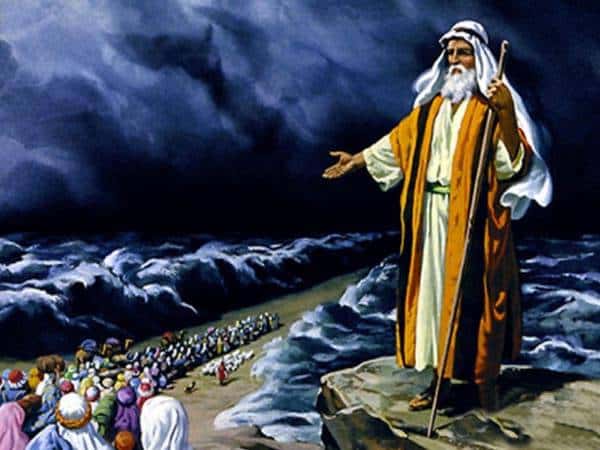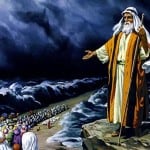We read in the Passover Haggada the following words;
We were slaves (Avadim HaYinu) to Pharaoh in Egypt. And HaShem our G-d brought us out from there with a strong hand (Yad Chazaka) and an outstretched arm: And if the Holy One, blessed be He, had not brought our ancestors out of Egypt, then we (and our children and our grandchildren) would still be enslaved to Pharaoh in Egypt.
Is that statement necessarily true?
We ourselves have all seen how slavery has been abolished in many parts of the world. Why should we assume that we and our children and children’s children would be slaves to Pharaoh still today? Why even assume that there would even still be a Pharaoh today?
Maran Ha’rav Kook writes that in fact the world would not and could not have advanced and developed if the momentous events In Egypt had not occurred. Without the illumination of this event the world and world history would have been frozen.
My father Ha’rav Baruch Kempinski taught My that had we not been taken out of Egypt with the clearly demonstrated “Outstretched Hand” of G-d, but rather through the good graces of this or that Pharaoh, we would be forever indebted to Pharaoh rather than to G-d. That would be enslavement. That is the reason for the use of the word VaYehi in the first verse of BeShalach;
It came to pass (VaYehi) when Pharaoh let the people go, that God did not lead them [by] way of the land of the Philistines for it was near, because God said, Lest the people reconsider when they see war and return to Egypt. (Exodus 13:17)
The sages point out that the words ”VaYehi – And it came to pass” always appear during times of great danger and difficulty. We see that concept in the first words in the Book of Esther:
“Now it came to pass(VaYehi) in the days of Ahashverush..” (Esther 1:1)
What could be sad or tragic about the exodus from Egypt?
We see as well
“And HaShem said unto Moses: ‘Now you shall see what I will do to Pharaoh; for by a strong hand shall he let them go, and by a strong hand shall he drive them out of his land.” (Exodus 6:1)
The text seems to imply that Pharaoh would have to chase them out of their bondage in Egypt . This then was the sadness that is implied in the word “ VaYehi (It came to pass) . The Torah doesn’t say that HaShem took them out, or even that the Children of Israel left Egypt. It was Pharaoh who let them out or chased them out. They were still under the psychological and spiritual control of Egypt .They still did not have the strength to seize their prophetic destiny in their own hands.
This came to an end on the shores of the Red Sea.
We read how the Egyptians set out to recapture the people of Israel:
Egypt (Mitzrayim) chased after them and overtook them encamped by the sea every horse of Pharaoh’s chariots, his horsemen, and his force beside Pi hahiroth, in front of Ba’al Zephon. (Exodus 14:9)
The events climax in the same chapter when they clearly see that “G-d brought us out from there with a strong hand (Yad Chazaka)”:
On that day HaShem saved Israel from the hand of Egypt (Mitzrayim), and Israel saw Egypt (Mitzrayim), dying on the seashore. And Israel saw the great hand, which HaShem had used upon Egypt (Mitzrayim), and the people feared HaShem, and they believed in HaShem and in Moshe, His servant. (ibid:30-31)
Most translators translate the verse thusly “and Israel saw the Egyptians dying on the seashore.” Yet it does not say Egyptians, it says “Egypt”. It was “Egypt” that died on the seashore. It was the concept of an invincible and all powerful Egypt that came to an end. Only then were the Israelites truly liberated.
Such was the case with the miraculous rebirth of this nation in this land. The difficulty with being part of a miracle is the ease in which one can be deluded into thinking that the miracle is a product of our mortal hands. Miracle after miracle occurred throughout all of Israel’s wars and many Israelis are convinced that we have the greatest army in the world. Miracle after miracle has occurred involving the ingathering of the exiles and some Israelis are convinced that it is occurring because we have the best government or lifestyle in the world. It is under those delusions that keep our people enslaved to the Pharaohs of our days, whether they live in Ramallah, Moscow or Washington.
To truly liberate ourselves from the Egypt’s of today and the Pharaohs’ of our era one needs to develop the discernment to see that after 2000 years of exile and persecution, it is G-d that brought us out from there with “a great hand” (yad chazaka)
”In every generation one is required to view oneself as if one personally left Egypt.” (Pesachim 116b)

